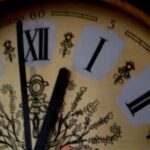The connection between insomnia and depression is revealed through a number of means. Numerous studies have shown that depressed patients improve with better quality sleep. The mechanisms relate to several key neurotransmitter/hormones.
The first association between sleep and depression is dopamine and serotonin. These two neurotransmitter/hormones affect moods and the perception of well-being. They also affect sleep quality. When a person is low on either dopamine or serotonin or both, the risk for depression increases. Serotonin is particularly associated with both anxiety and depression.
Serotonin levels and dopamine levels decrease with increased sleep debt. Sleep debt is the build up of lost sleep over a period of days, weeks, months or even years. Sleep research has shown that those with heavy sleep debt will also have low levels of both dopamine and serotonin.
Selective serotonin reuptake inhibitors (SSRIs) are typically prescribed for depression and anxiety, but they are also often prescribed for insomnia. They work by blocking the infusion of serotonin by nerve cells. This effectively leaves more serotonin available in the bloodstream. This readily-available serotonin in the blood provides an artificial means for increasing relaxation. For this reason, SSRIs are one of the most popular drugs for depression, anxiety and sleeplessness.
An example of dopamine’s impact on sleepiness is Parkinson’s disease, which is characterized by low levels of dopamine and increased rates of depression. In one study of bright light therapy (Willis and Turner 2007) and Parkinson’s patients, the light therapy increased dopamine levels, which elevated their mood and increased their sleep quality.
Depression and insomnia also have a common connection in that they both require effective GABA (Gamma-aminobutyric acid) receptor modulation. Changes in light are accompanied by the inhibitory neurotransmitter, GABA. For this reason, non-benzodiazepine hypnotics interact with the GABA receptor complex and modulate the GABA-BZ receptor chloride channel. This stimulates the sedative effects of these drugs. This also helps produce some of their side effects as well.
Melatonin of course, is the hormone that drives sleep, and our body’s production of melatonin precedes increased sleepiness. The neurotransmitter-hormones melatonin and serotonin are both stimulated by changes in light availability.
Research shows that one can increase serotonin, dopamine and melatonin levels, as well as stimulate a healthy modulation of the GABA receptor with plenty of sunshine and a strenuous workout early in the day. Each of these has been associated with better quality sleep and a reduction in depression. A healthy diet and good sleeping hygiene are also essential.
REFERENCES
Willis GL, Turner EJ. Primary and secondary features of Parkinson’s disease improve with strategic exposure to bright light: a case series study. Chronobiol Int. 2007;24(3):521-37.
Phillips EM, Katula J, Miller ME, Walkup MP, Brach JS, King AC, Rejeski WJ, Church T, Fielding RA. Interruption of physical activity because of illness in the Lifestyle Interventions and Independence for Elders Pilot trial. J Aging Phys Act. 2010 Jan;18(1):61-74.
Calandre EP, Rodriguez-Claro ML, Rico-Villademoros F, Vilchez JS, Hidalgo J, Delgado-Rodriguez A. Effects of pool-based exercise in fibromyalgia symptomatology and sleep quality: a prospective randomised comparison between stretching and Ai Chi. Clin Exp Rheumatol. 2009 Sep-Oct;27(5 Suppl 56):S21-8.
Youngstedt SD, Kline CE, Zielinski MR, Kripke DF, Devlin TM, Bogan RK, Wilcox S, Hardin JW. Tolerance of chronic 90-minute time-in-bed restriction in older long sleepers. Sleep. 2009 Nov 1;32(11):1467-79.
Seifert T, Brassard P, Wissenberg M, Rasmussen P, Nordby P, Stallknecht B, Adser H, Jakobsen AH, Pilegaard H, Nielsen HB, Secher NH. Endurance training enhances BDNF release from the human brain. Am J Physiol Regul Integr Comp Physiol. 2010 Feb;298(2):R372-7.
Chang Y, Liu YP, Liu CF. The effect on serotonin and MDA levels in depressed patients with insomnia when far-infrared rays are applied to acupoints. Am J Chin Med. 2009;37(5):837-42.
Krystal AD, Harsh JR, Yang RR, Rippon GA, Lankford DA. A double-blind,
placebo-controlled study of armodafinil for excessive sleepiness in patients with treated obstructive sleep apnea and comorbid depression. J Clin Psychiatry. 2010 Jan;71(1):32-40.
Gross PK, Nourse R, Wasser TE. Ramelteon for insomnia symptoms in a community sample of adults with generalized anxiety disorder: an open label study. J Clin Sleep Med. 2009 Feb 15;5(1):28-33.
Sbarra DA, Allen JJ. Decomposing depression: on the prospective and reciprocal dynamics of mood and sleep disturbances. J Abnorm Psychol. 2009 Feb;118(1):171-82.

